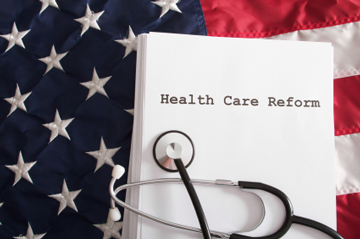
Healthcare reform is a moving target. In just a little over a year, the Patient Protection and Affordable Care Act has already started to look different than when it first passed last March.
Here’s a look at seven changes affecting employers that have been made to the reform law over the past year.
1. Grandfathering rules
In November, the feds amended the reform law’s original grandfathering regulations, which said that once a group health plan entered into a new policy, certificate or contract of insurance, the plan lost its grandfathered status.
Under the amendment, group health plans can now enter into new insurance policies/certificates/contracts without affecting their grandfathered status — as long as the plan’s benefits levels do not decrease.
2. Nondiscrimination rules
In December, the feds released a notice saying that they are delaying the date insured health plans will have to comply with the nondiscrimination rules that were part of the reform law.
The Internal Revenue Service (IRS) and other agencies said compliance with the nondiscrimination rules will not be required until regulations or other guidance regarding the rules has been issued.
The rules — which affect plans that are not grandfathered — were created to prohibit group health plans from discriminating in favor of highly compensated employees.
3. Healthcare claims and appeals rules
The feds granted employers a reprieve from having to comply with some of the new rules designed to protect patients who receive health insurance claims denials.
Originally, all of the claims and appeals rules were to take effect for plan years beginning on or after Sept. 23, 2010.
Now plan sponsors have until Jan. 1, 2012 to comply with these four requirements:
- Plan participants must be notified by their employer or plan administrator of a health coverage determination (whether it’s a denial or not) in urgent care situations within 24 hours.
- Internal and external claims appeals and review notices must be provided to non-English speaking participants in a “culturally and linguistically appropriate manner.”
- When claims denial notices are issued, the notices must explain what treatments aren’t covered under the plan and why.
- If a plan fails to adhere to all the claims and appeals requirements, the plan participant is permitted to seek the remedies available under the Employee Retirement Income Security Act (ERISA) or state law — including litigation.
4. W-2 health cost reporting
Smaller employers — those issuing fewer than 250 W-2s — were also granted an extended reprieve from the mandate to report the cost of employees’ health insurance on W-2 statements.
Those companies will not be required to report the cost of health coverage on employees’ W-2s prior to 2014.
So, at the earliest, smaller employers will have to report the cost of coverage on 2013 W-2s (which will come out in 2014).
The IRS also said the reporting deadline for smaller employers will continue to be pushed back until further guidance is issued for the requirement.
Large employers still have to report health insurance costs on employees’ 2012 W-2s (issued in 2013).
5. Early Retiree Reinsurance Program
On May 6, the feds stopped accepting applications for the Early Retiree Reinsurance Program, which provides reimbursements to organizations that have early retiree healthcare plans.
The Centers for Medicare & Medicaid Services announced that enough plan sponsors are already enrolled to exhaust the program’s $5 billion in funding.
6. 1099 filing requirement
The reform law originally required companies to track and report payments to every vendor they paid more than $600 to in a year for goods or services.
In April, President Obama killed the strict reporting requirement with his signing of The Small Business Paperwork Mandate Elimination Act of 2011.
7. Free Choice Vouchers
The same bill that killed the 1099 requirement also axed the “Free Choice Voucher” provision.
The voucher system, starting in 2014, would’ve allowed workers who make less than 400% of the federal poverty line to get a voucher if their employer-sponsored coverage would cost them between 8% and 9.8% of their income.
Employees would then have used the vouchers to purchase alternative health coverage through state exchanges.
